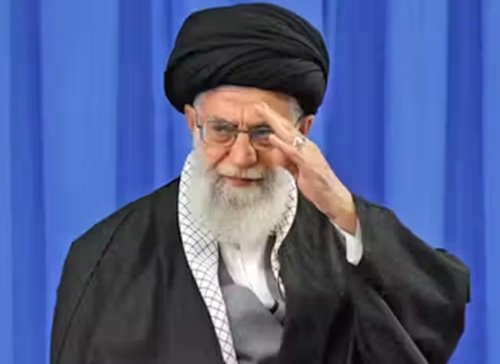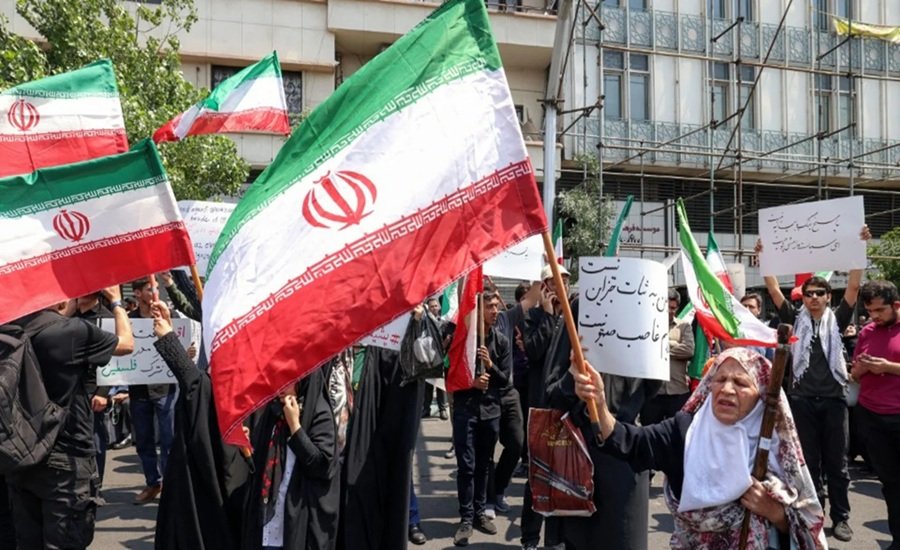Led by Ayatollah Khamenei, Iran has shaken the world, showing young voices everywhere that courage, unity, and standing tall can change the game
Raziqueh Hussain
IN the quiet before dawn in June 2025, the skies over Israel lit up, not with celebration, but with fury. Over 300 missiles and drones crossed the threshold right into the heart of Tel Aviv. This time, it wasn’t Hezbollah, Hamas, or shadowy proxies. It was Iran itself, striking from its own soil, with precision and defiance. And in that moment, everything changed.
For years, Israel had lived with the confidence of technological superiority and battlefield dominance. But the direct strike from Iran was not just military; it was symbolic. It said, “We are no longer hiding in the shadows. We are no longer afraid.” The Iron Dome, once considered untouchable, blinked. A few missiles slipped through. And that was all it took to shake a nation that had always believed it was unrivalled.
Israel found itself trapped in a multi-front war of attrition. In the north, Hezbollah’s rockets rained down relentlessly. In the south, Gaza burned. Across the Red Sea, the Houthis struck Israeli-linked vessels, cutting economic arteries with ease. For every drone Israel launched, another rose to meet it from Iran’s allies. It was a slow bleed, and it worked.
But perhaps more painful than any bomb or blockade was the isolation. At the United Nations, the voices that once stood with Israel hesitated. South Africa’s genocide case echoed loudly in The Hague. Nations in the Global South that had once been neutral now raised their voices, not in support of Israel, but in defence of Palestine. Iran, long branded a pariah, suddenly stood in the eyes of millions as the underdog who dared to strike back.

Behind all of this was one man, Ayatollah Ali Khamenei. At 86, he didn’t blink. He didn’t bend. And as the missiles flew and the world debated, he whispered what his people already believed: “Resistance is not revenge. It is dignity.”
Even in cyberspace, Iran left its mark, hacking water systems, leaking secrets, turning Israeli security into a question, not a guarantee. And in quiet underground facilities, centrifuges spun faster, signalling that the final card, nuclear capability, was being readied if the red lines were crossed.
Israel, for all its military strength, was forced to confront something far more powerful: resolve. Not just from Iran, but from millions who now looked to Tehran as a symbol of survival and resistance.
The year 2025 was not just about missiles; it was a year when an old lion roared, and countries across the world, even its enemies, listened. The lesson was clear: Iran could be bombed, sanctioned, and isolated, but it could not be broken. And those who tried would now have to think twice.
To the West, Ayatollah Khamenei is a stubborn cleric. But to millions, he is a symbol of pride, sacrifice, and steel-hearted endurance. In the mosques of Qom, the camps of Lebanon, the rubble of Gaza, and the deserts of Yemen, his face appears, not in fear, but in reverence. Why? Because he never flinched. Not when his scientists were assassinated. Not when his economy was strangled. Not when the world told him to kneel.
Where others made peace with power, Khamenei held the line and spoke of resistance not as a strategy, but as faith. He told his people: “They can take our money, isolate us, bomb our cities, but they cannot steal our will.” In every burned-out home, there still flies a flag of resistance, and in every child who grows up without fear of American boots, he is seen not as a politician, but as a guardian.

People gather in central Tehran to protest against Israel’s wave of strikes on Iran on 13 June 2025 — AFP
His leadership is not loud. It is firm, unshaken by time. And in 2025, when Iran struck back and the world finally noticed, it wasn’t just missiles they saw, it was Khamenei’s message, clear as fire: “The era of submission is over.”
And for that, millions love him, not because he seeks war, but because he refuses defeat. Iran didn’t just retaliate. It rewrote the rules.
____________
The writer is the editor-in-chief of a UK-based magazine. Views expressed here are the writer’s own, and Clarion India does not necessarily subscribe to them.

